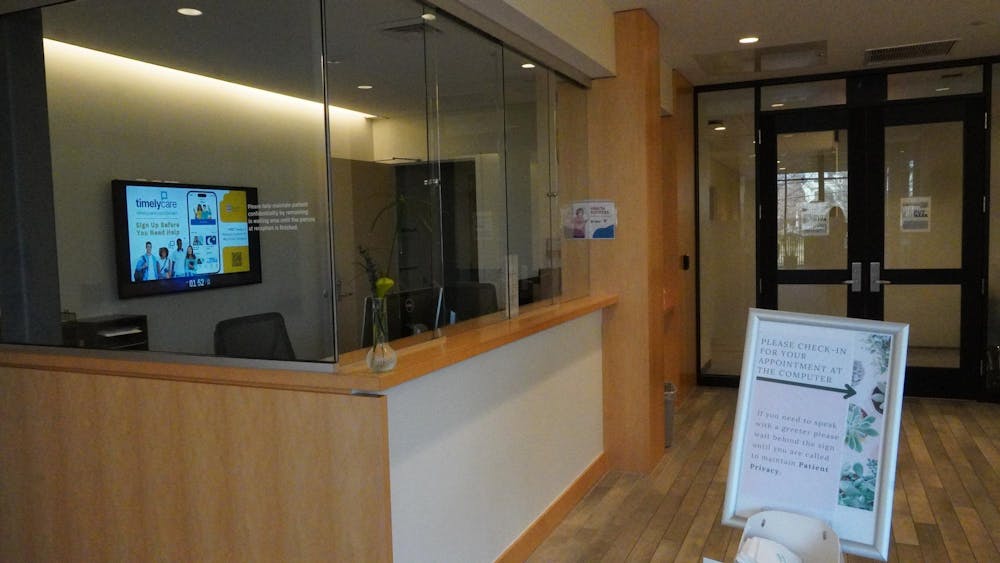Following the election of Donald Trump, a sense of fear and resolve among Brown’s student groups advocating for reproductive health care has emerged.
The former president has rejected the idea of a national abortion ban, but his campaign did not focus on protecting reproductive healthcare, and his conservative Supreme Court appointments were crucial to the overturning of Roe v. Wade. This leaves the future of abortion access uncertain and reproductive healthcare organizations on Brown’s campus in limbo.
Through collaboration and new initiatives, such as advocacy for access to medical abortion pills, leaders of Brown’s reproductive healthcare groups say they are focusing on mitigating the potential impacts of Trump’s second term on reproductive healthcare in Rhode Island.
In their first meeting since the election, as members of Brown Democrats’ Reproductive Rights Caucus began discussing the results of the election, there was a sense of surprise and feeling that there was “nowhere to go.”
Other organizations on Brown’s campus had a similar reaction.
“I was more shocked that he won just because it seemed like we were in a way where we were moving forward,” said Kennedy Clark ’26, co-president of Planned Parenthood Advocates at Brown. “All of Trump’s policies and what he advocates for just take us backwards in time in regards to reproductive healthcare.”
Alex Ivanchev ’25 MPH’26, a coordinator for the Sexual Health Awareness Group, described feeling shocked seeing the results of the election. “As someone who has worked within sexual and reproductive health spaces,” Ivanchev said he recognizes “the importance of having a political leader who uplifts and champions” reproductive healthcare as “a way to empower people.”
After Roe v. Wade was overturned in June 2022, Visiting Professor of Gender and Sexuality Studies Sarah Gamble said she met with students and faculty in the School of Public Health and her program, emerging with a desire to center focus on reproductive justice.
The result of these conversations was the Reproductive Justice Collaborative, a monthly gathering of faculty and students organized to discuss how to advance reproductive efforts at Brown.
So when the collaborative gathered at the Faculty Club post-election, the atmosphere was a combination of “depressed” and “energized,” Gamble said.
“There’s a great sense of urgency, and so we are committed to continuing to provide this space for people to connect and coordinate our work and our efforts,” she continued.
Gamble said the meeting at the Faculty Club focused on the question: “Where can we do the most and make the most impact?” After attending this meeting, Favour Akpokiere ’26 brought this question to Reproductive Justice@Brown, a club Akpokiere co-heads that focuses on reproductive health education and advocacy.
The organization, which had been focusing on a project involving prison doulas, shifted their efforts to focus on the aftermath of the election.
One priority is addressing the strain that increased out-of-state travel for reproductive healthcare could place on Rhode Island, which has limited resources. “There is only one Planned Parenthood clinic in Rhode Island and one other clinic that provides in-person abortions,” explained Cara Hutton ’26, the co-president of Planned Parenthood Advocates at Brown.
To mitigate this pressure, the club is launching initiatives to reduce the number of Brown students relying on local clinics. “By advocating for services like medication abortion on campus, we can help alleviate the burden on local providers and ensure resources remain available for those traveling from more restrictive states,” Talia Reiss ’27 added.
According to Akpokiere, the organization is also working to retain current members and collaborate with other clubs. “There’s strength in numbers and collaboration,” Akpokiere said.
“The goal is, first of all, for us to know each other on campus and better coordinate our efforts, so that we can have more impact,” Gamble added, pointing to the Reproductive Justice Collaborative’s work in research, advocacy and partnerships with community organizations.
This summer, for example, Gamble collaborated with three undergraduates to identify and map reproductive justice-related organizations and advocacy efforts at Brown, in Providence and across Rhode Island.
Regardless of political climate, Ivanchev emphasized the importance of maintaining reliable and accessible reproductive health services for Brown students.
“We have a consistent dedication to providing health services to students on campus so that they can experience optimal well-being,” he said. “Last year, we made Plan B free for all students at Brown, and we’re going to continue offering services to remind students that they have full access to resources.”
“Consistency is key during times like these,” Ivanchev added.

Hadley Carr is a university news editor at The Herald, covering academics & advising and student government.





